2017 Pediatric Hematology/Oncology Fellows
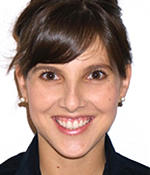
Francesca (Fran) Alvarez Calderon, MD, PhD
Residency: Boston Combined Residency Program
Research interests: Hematologic malignancies
Fran graduated from Florida International University, earning a summa cum laude in chemistry and biochemistry for both bachelor’s and master’s degrees. She then went on to the University of Colorado to get both her MD and PhD in immunology. Her thesis research focused on targeting mitochondrial metabolism in tyrosine-kinase driven myeloid leukemias (BCR-ABL and FLT3-ITD leukemias). Her work pointed to a potential therapy for myeloid leukemias and led to seven publications (three first author) and the Joseph W. St. Geme, Jr. Leadership Award for research by a medical student going into pediatrics. She is planning a career as a physician-scientist.
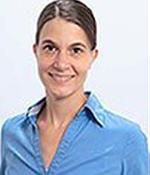
Ulrike Gerdemann, MD
Residency: Boston Combined Residency Program
Research interests: Tumor immunology
Ulrike obtained her MD from Charité University in Berlin, Germany. She spent two years of medical school working with Anja Troeger and Dagmar Dilloo creating dendritic cell leukemia vaccines. She then completed two-and-a-half years of pediatrics residency at Heinrich Heine University in Dusseldorf followed by five years of postdoctoral training at Baylor University, where she worked with Malcolm Brenner, an expert in stem cell transplantation. She developed and clinically translated new cell-based therapies to treat viral infections in transplant recipients. She was able to achieve an 80% response rate in patients with life-threatening viral infections that were resistant to conventional therapies. Ulrike is a Boston Combined Residency Program (BCRP) resident in the Integrated Research Pathway and worked with Nick Haining on whether prolonged in vivo culture of T-cells alters their epigenetic state, "aging" them prematurely.
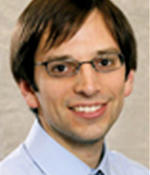
John Prensner, MD, PhD
Residency: Boston Combined Residency Program
Research interests: Cancer genomics
John concentrated on English literature at Tufts as an undergraduate and graduated summa cum laude and Junior Phi Beta Kappa. He then spent a year analyzing the genomes of prostate cancers with Matt Myerson and Bill Sellers at Dana-Farber Cancer Institute and the Broad Institute before he started his MD and PhD degrees at Michigan. He completed his thesis research with Howard Hughes Medical Institute (HHMI) investigator, Arul Chinnaiyan, on the molecular analysis of adult cancer (prostate, breast, and lung). He identified novel RNA species (long non-coding RNAs or lncRNAs) that are dysregulated and causally active in prostate cancer and perhaps other cancers and showed that one lncRNA, SChLAP-1, negatively regulates the SWI/SNF nucleosome remodeling complex and is a biomarker for prostate cancer aggressiveness. He is fast-tracking in the Integrated Research Pathway and working in Todd Golub’s laboratory doing a large scale analysis of protein products of small, mostly unannotated ORFs in the genome.
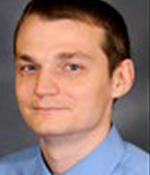
Jared Rowe, MD, PhD
Residency: Boston Combined Residency Program
Research Interests: Tolerance as it applies to normal and cancer immunology and immunotherapy
Jared majored in genetics, cell biology, and development at the University of Minnesota, and graduated summa cum laude with distinction prior to embarking on a seven-year MD/PhD in immunology at the same school. His exceptional research focused on how the normal changes in immune suppression during pregnancy, which occur to accommodate foreign fetal antigens, impact host defense to prenatal pathogens. He showed that the increase in maternal immune-suppressive regulatory T-cells creates a pregnancy-specific defect in host defense that is exploited by pathogens such as listeria. His work won every research prize and honor at Minnesota and led to a phenomenal 18 publications, including eight first author papers in top tier journals such as Nature, Cell Host & Microbe, and the Journal of Immunology. He is fast-tracking in the Integrated Research Pathway within Boston Children Hospital’s Division of Immunology on a patient with immunodeficiency and a defect in mannosidase.
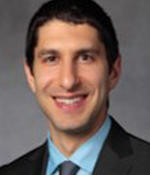
Marc Schwartz, MD, PhD
Residency: Boston Combined Residency Program
Research Interests: Combination immunotherapies
Marc went to Virginia Commonwealth University and then transferred to the University of Virginia, where he graduated with highest distinction in chemical and biomedical engineering prior to beginning his combined MD/PhD degree at the University of Washington in Seattle. As an undergrad, he worked with Klaus Ley on a mouse model of chronic inflammation in inflammatory bowel disease. For his PhD he worked with David Rawlings, examining the role of CD40 and T-cells in B cell homeostasis and proliferation and in selection of the repertoire of the B cell receptor. It led to multiple publications including a first author paper in the Journal of Immunology. He is in the Accelerated Research Pathway and is studying combination immunotherapies in a mouse model of melanoma in Kai Wucherpfennig’s lab, where they are using an antibody to block cancer enzyme cleavage of a T-cell activating co-receptor.
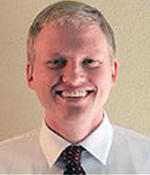
Richard Voit, MD, PhD
Residency: Boston Combined Residency Program
Research Interests: Gene editing and oncology
Richard completed his undergraduate work at the University of Texas at Dallas, where he earned a summa cum laude in molecular biology and then proceeded to the University of Texas Southwestern for an MD/PhD before matching in pediatrics in the Boston Combined Residency Program (BCRP). During college he spent a semester in China and he investigated the plasma proteome using mass spectroscopy. At UTSW, he did his thesis research with Matt Porteus and created the first genome targetable zinc finger nucleases, helping to launch the field of genome editing. Richard used later generation genome targetable nucleases to generate HIV-resistant T-cells and correct the sickle cell mutation—with a long term goal of correcting these and other diseases by autologous transplantation of corrected stem cells. He is fast-tracking in the Integrated Research Pathway and working in Harvey Lodish’s lab on the mechanism of mutant Jak2 and the stage at which it acts.

 Translate
Translate